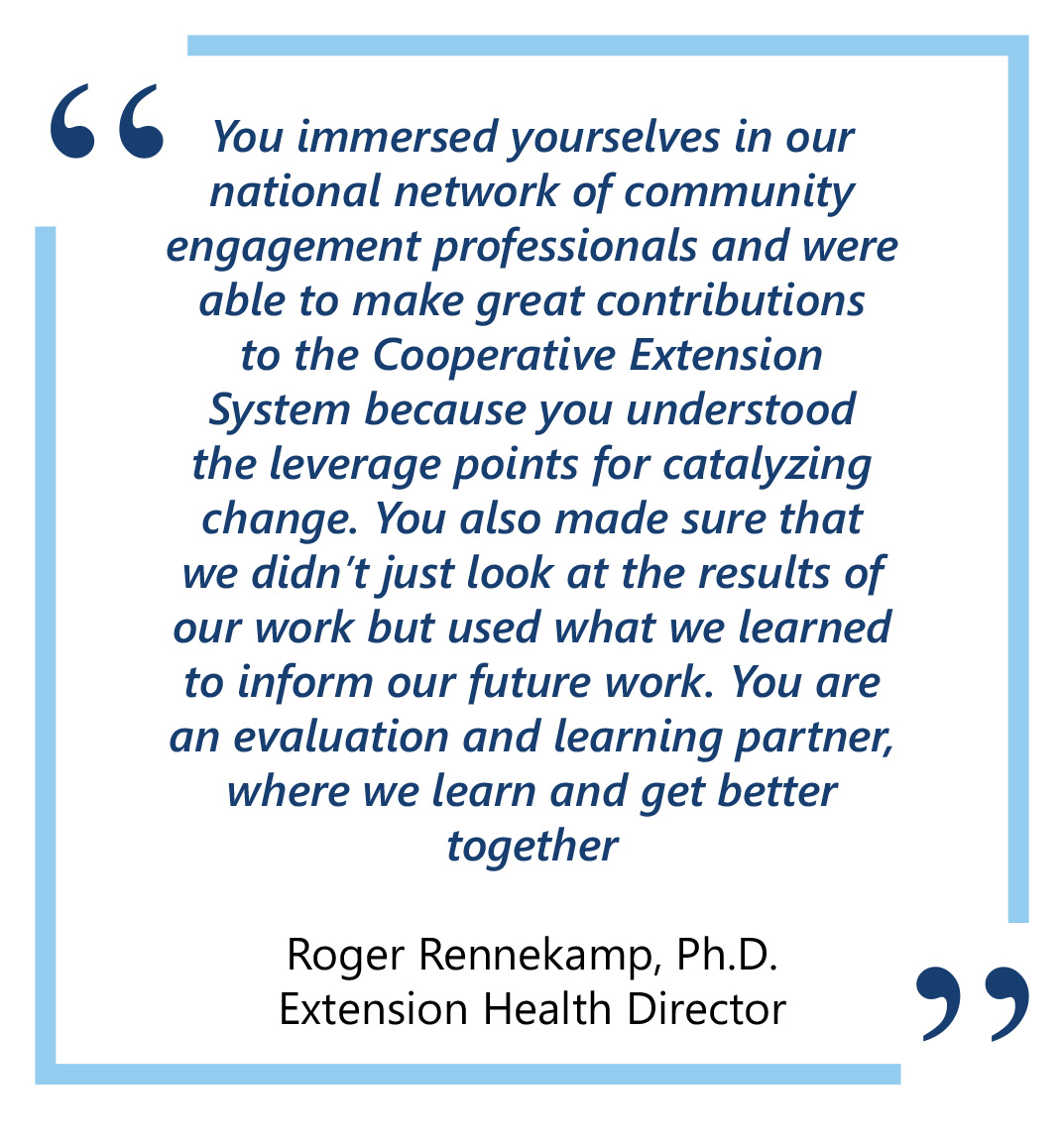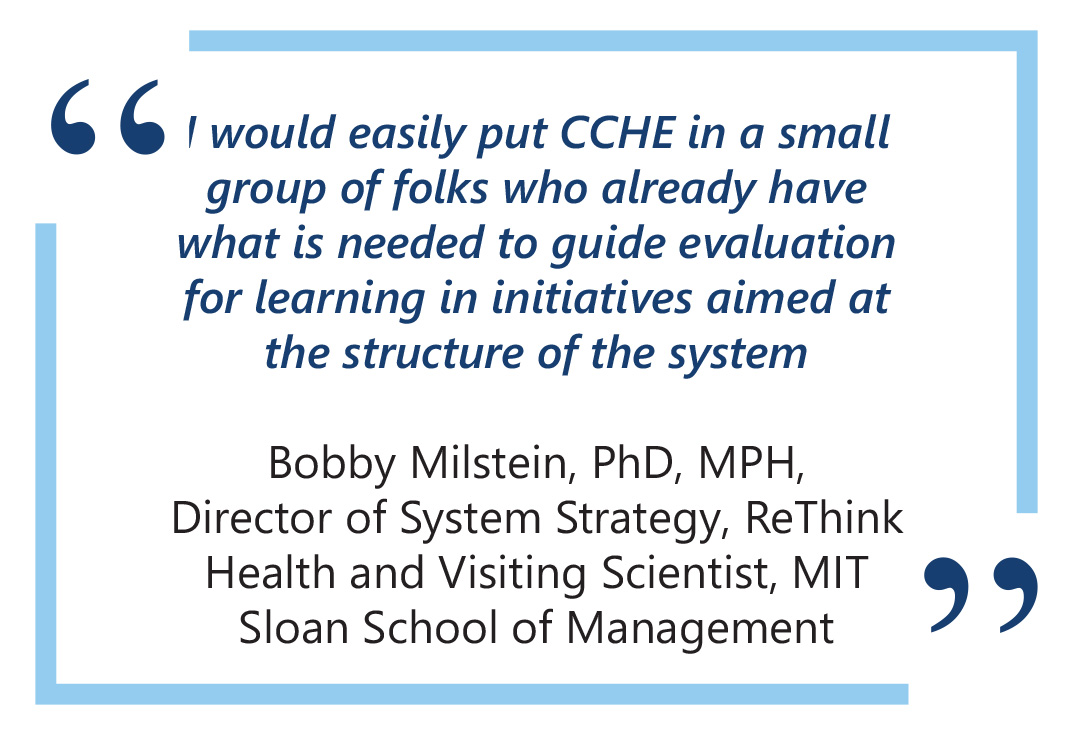
Our Approach
At CCHE we combine rigor with practicality because we understand real-world concerns.
CCHE’s mission is to improve the health of communities through collaborative approaches to planning, assessment, and evaluation.
CCHE understands that effective approaches to improving the health of communities are complex and often evolving. That’s why we design evaluations that help partners understand how their work is contributing to change within the real context in which it is happening. We work closely with our partners to ensure that results are useful, timely, and diverse perspectives are elevated.
As an evaluation partner we aim to provide useful evaluation results. This means sharing findings that resonate with multiple audiences, are useful now and in the future, and drive longer-term change towards healthier and more equitable communities. We show up curious, ready to listen, and willing to adapt so that evaluation can truly be a tool for learning. We intentionally invest in building relationships and trust so that we can build evaluations that reflect our partner’s goals, decision points, and perspectives. Our emphasis on strategic learning means we can identify mid-course adjustments that strengthen both the program and the evaluation in real time.

We leverage thirty years of mixed methods experience to design evaluations that fit the unique context and needs of initiatives and programs. Our 300+ evaluations span hundreds of communities, dozens of settings (from schools to clinics), and diverse configurations of systems and sectors. CCHE’s portfolio includes large multi-year, multi-site initiative evaluations, as well as smaller projects related to emerging community coalitions focused on specific issues. We have learned that while there are commonalities across initiatives, each setting, system, and place is unique.
At the beginning of each evaluation, CCHE works closely with key partners to design the tailored services they need to successfully reach their goals. Our approach brings together traditional mixed methods research methodologies with participatory and developmental evaluation approaches. We also bring broad subject matter expertise that ranges from health care and traditional public health interventions to broader social needs and system change because we know that the places that we live, work, and play all impact our health.
We develop customized tools that will have lasting impact. We work hard to customize and co-create evaluation tools and resources that will be useful to our partners after the evaluation and, when appropriate, that can be shared other organizations doing similar work. We have helped organizations build theories of change to communicate about their organization’s work, systems for monitoring their progress, piloted data collection tools that can be used by program staff and developed toolkits to help strengthen evaluation practice.

Our approach emphasizes understanding evaluation’s role in promoting equity and addressing health disparities. We recognize that equitable evaluation means sharing power and broadening the base of stakeholders we collaborate with. We recognize that implicit commitments to racial equity and social justice are not enough. As evaluators, we recognize that we have the power and influence to advance the conversation and prompt action to rebuild more equitable and just systems. We are actively working to strengthen equitable evaluation practices, tools, and methods that hold ourselves accountable to more equitable organizational and evaluation practices.
